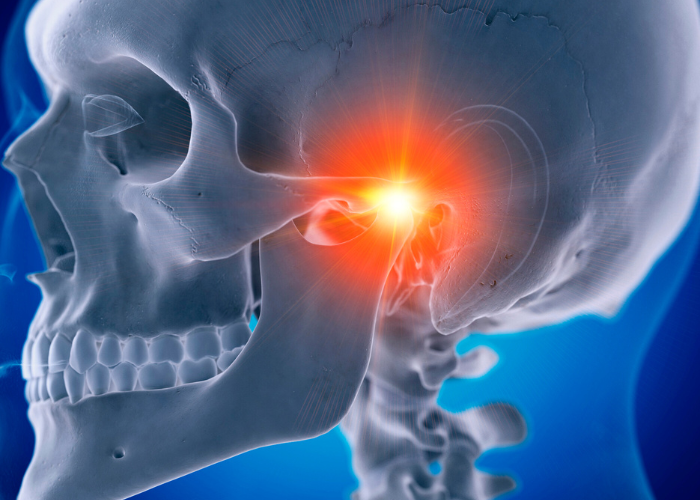The temporomandibular joint (TMJ) is a complex structure that connects your jaw and skull. It is lined with muscles and ligaments that help you open and close your mouth, chew, speak, and yawn. You can experience TMJ problems when your jaw is not working properly.
This may cause pain, tingling, clicking, or locking. TMJ problems refer to any condition that affects the joints between the upper part (temporal) of one's skull and the lower part (mandible) of one's mouth or jaws. It is usually associated with a problem in the muscles or nerves that hold the jaw in place.
At West Boca Dental Care, we're here to help with any TMJ questions you may have. Contact us today to schedule your TMJ consultation.

TMJ problems are usually caused by abnormal wear and tear on the joint. This can result from:
TMJ problems can be caused by a chipped tooth, misaligned teeth, or dental problems in the jaw bone. If a tooth is loose or cracked, it can cause nerve damage, leading to TMJ pain.
TMJ pain is often caused by a problem in the jaw bone. When your jaw doesn't work properly, your muscles and ligaments may be unable to handle all the stress they are under. This leads to injury and inflammation of these tissues. Over time, this can lead to discomfort in your mouth or face.
TMJ problems can also be caused by a problem with the muscles and nerves that hold your jaw in place (the temporomandibular joint). This can happen when one of the joints (jaw joint) becomes loose or wears out.
This problem may also be caused by injury to other structures in the mouth, such as teeth, lips, or face. In some cases, TMJ problems are caused by other medical conditions. For example, TMJ problems may be related to arthritis or an infection.

The symptoms of TMJ vary depending on where your symptoms are located in your jaw. The most common symptoms are:
A dentist or an oral surgeon typically helps diagnose TMJ problems. Depending on the severity of your symptoms, you may be referred to an ENT (ear, nose, and throat) specialist for more testing and treatment. You may also be referred to a dentist for treatment when your symptoms interfere with your daily life.
If you have a TMJ problem, your dentist can help diagnose your symptoms and determine the best treatment for you. Your dentist may also ask you to try various types of treatment (such as splints, braces, or other oral appliances) to see which one works best for you.

Treatment for TMJ problems depends on what is wrong and how severe the condition is. The most common treatment for TMJ problems is:

TMJ affects the temporomandibular joint, causing jaw pain, clicking, or difficulty chewing.
Stress, jaw clenching, arthritis, or injury can lead to TMJ symptoms.
Through a physical exam, imaging, and review of your symptoms.
Therapies include night guards, muscle relaxants, physical therapy, and stress reduction.
Mild cases may resolve with time, but chronic or severe TMJ often needs professional treatment.